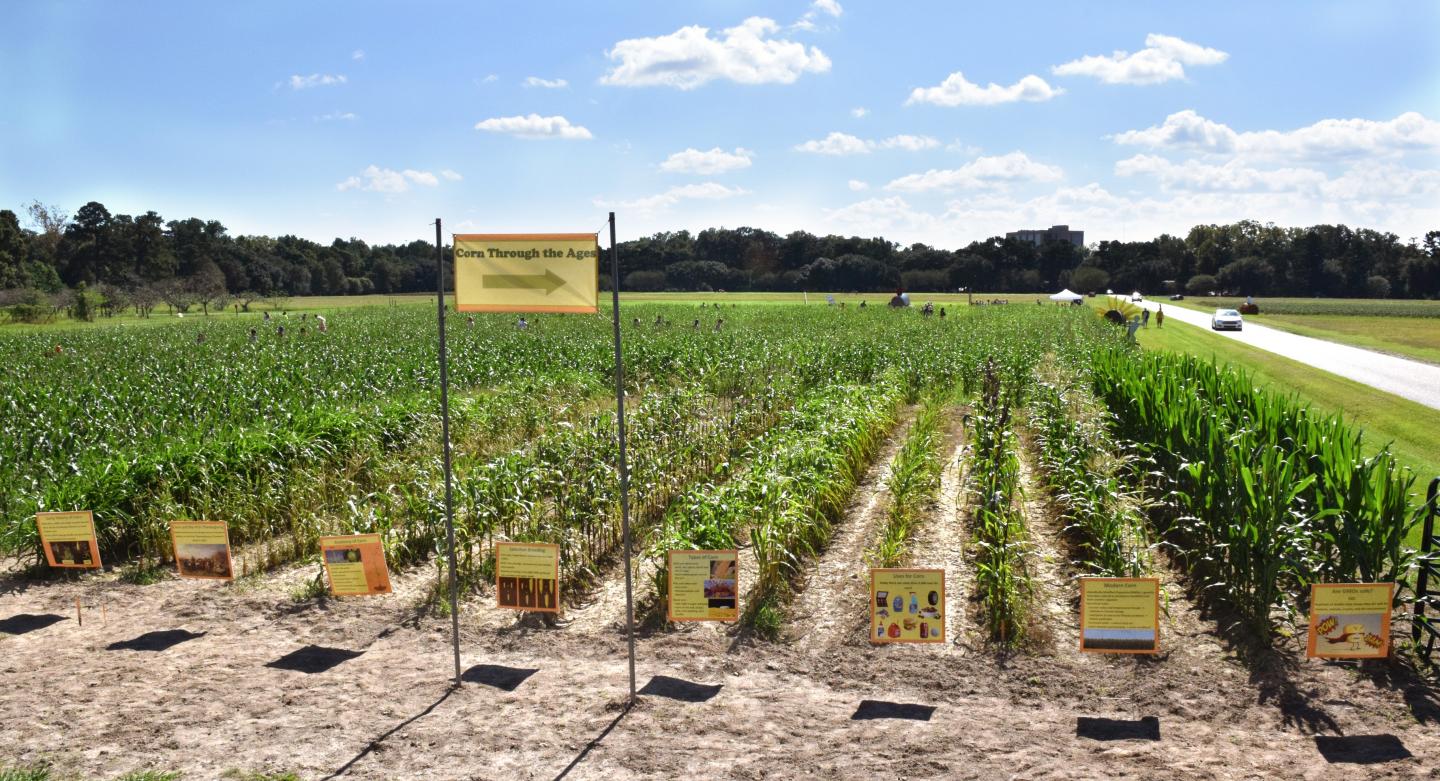Vanishing animals command headlines but declining plant diversity also imperils humans; researchers and educators explain how curing ‘plant blindness’ is essential to saving biodiversity and ourselves; food plants are a great place to dig in

Credit: Krishnan et al.
From our perches in the urban jungle – or even in the leafier parts of suburbia – we often have a tough time naming the last plant we saw. Even if we just ate part of it. This is a symptom of “plant blindness,” a term coined two decades ago by researchers who showed that modern civilization is perilously disconnected from the plant kingdom. Our blindness has progressed even further since then, to the point where we hardly recognize the plants that feed us every day.
That threat came sharply into view this month when the United Nations reported that one million plant and animal species are at risk of extinction. Much attention focused on loss of animals – particularly the rhinos and other large charismatic ones. But the decline of plants should be just as unnerving, say researchers in a paper published May 24 in the journal Plants, People, Planet.
While all species have an “intrinsic” value, plants also provide tangible environmental, economic and cultural benefits. Even the wild ones. Plant breeders have used wild tomatoes, for instance, to increase resistance to pests and diseases so that the crop can be grown on a large scale. Other plants remediate polluted soils, or provide people with construction materials and medicines. And all plants clean and regulate the air we breathe.
“Unfortunately, we’re losing species faster than we can study and account for them,” said Tara Moreau, a researcher at the University of British Columbia who co-authored the study. “Plant extinction should not be an option, and public education is key.”
As people worldwide become ever more urban, it is not surprising that plants become less visible in our lives. What is surprising is how far we have departed from knowing even the food plants that we still interact with every day, at every meal. As fewer people work in agriculture, and as we eat more packaged and processed foods, these essential plants are hidden to us.
“Plant blindness exists even for the food plants we eat every day,” said Colin Khoury, a co-author from the International Center for Tropical Agriculture (CIAT), whose work has shown that 7,000 useful plants across the globe are at risk. “But despite the blindness even in these food plants, they still represent an excellent and particularly powerful medium to connect people to plants, biodiversity and conservation.”
Khoury studies the history of the plants and animals we eat, and has documented how people around the world increasingly eat the same “global standard diet.” He recently took that work a step further by examining the global origins of ingredients in favorite foods like pizza and hamburgers. It turns out that the all-American favorite – including the side of fries – did not have a single ingredient that originated in North America, as demonstrated in The not so American Hamburger study.
“Food is a great way to educate ourselves about our own histories, and to understand how plants connect us around the world,” Khoury said.
The not-so-secret gardens
While conservation in the wild is one cornerstone of plant preservation, botanic gardens and living plant seedbanks are also essential to ensuring that no rare or threatened plant goes extinct. The world’s 3,500 botanic gardens are home to about one third of known plant species and employ more than 60,000 experts in horticulture, taxonomy, conservation and public education.
Visited by more than 250 million people every year, botanic gardens are also crucial allies for addressing plant blindness, say the researchers.
Plant seedbanks, meanwhile, preserve seeds and other plant materials in cold conditions that will give them the chance to survive for hundreds or even thousands of years into the future, and are great tools for outreach. CIAT is building a new visitor-friendly gene bank, called Future Seeds, which will house the center’s 68,000 accessions of beans, tropical forages, and cassava. It is part of the CGIAR’s network of genebanks, which provides “back-up copies” of its seeds to the Svalbard Global Seed Vault in Norway.
Recognizing that botanic gardens, gene banks, and other organizations working with plants share concern for their loss – and worry for the lack of public awareness about them – organizations are teaming up to fight plant blindness.
The study documents a wide range of educational success stories where botanic gardens and other organizations have come together to provide formal and informal educational experiences for children, parents, and vocational training similar to the Veterans Farm Program offered by Denver Botanic Gardens.
“In an era confronted by many global problems such as climate change, habitat destruction, plant and animal extinctions, population explosion, hunger and poverty, we cannot afford to ignore plant blindness any longer,” said Sarada Krishnan, Director of Horticulture and Center for Global Initiatives at Denver Botanic Gardens and one of the co-authors of the study.
“Without plants there is no life. We need to rewrite the plant narratives to bring plants front and center. For this, we need to craft new approaches to attract the next generation to the plant sciences,” said Krishnan.
“Taking the time to engage the public about food plants is not only educational, but lots of fun,” said Ari Novy, the president and CEO of the San Diego Botanic Garden and study co-author. “It turns out most people love to eat and really enjoy learning more about their food.”
###
Media Contact
Sean Mattson
[email protected]
Related Journal Article
http://dx.




